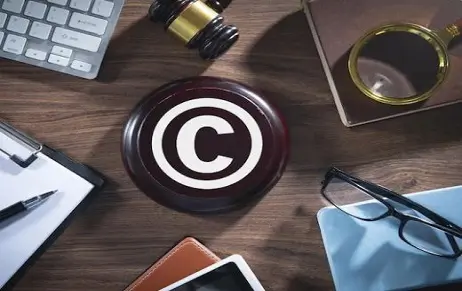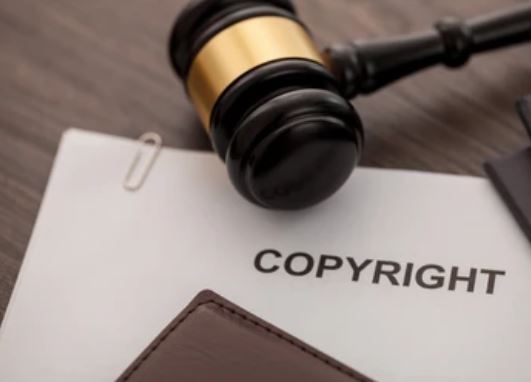Introduction A catchphrase is defined as a term, phrase or sentence repeatedly used by an…
Metaverse – A Challenge To The Copyright Law
Introduction
“Everything that you can imagine is real”. These words by Pablo Picasso can be said to have gained reality with the recent development of a ‘virtual word’ parallel to our own real world- the Metaverse. The term “Metaverse” has gained popularity recently and is often being referred to as the ‘second internet. The idea of Neil Stephenson in his novel ‘Snow Crash’ in 1992, could be said to be the first inception of the idea of the “virtual world” where people interact with each other digitally through avatars. Many technological companies tried to create the same virtual world and bring the same level of inclusivity as stated in ‘Snow Crash’. However, none could reach to the full visualisation.
[Image Source: freepic]

Copyright, as we all are aware, is one of the Intellectual Property (IP) rights that offers protection to the works of the original authors, like literary work (which nowadays also includes computer programs and databases which are written with specific codes or schemes), dramatic, musical, artistic work, cinematographic films and sound recordings. The virtual world will also require laws and IP rights for its smooth functioning and exploitation-free domain.
Metaverse and copyright
Metaverse is still in its infancy stage and is expected to be completed soon. The complexities like the use of virtual reality (VR), augmented reality (AR), artificial intelligence (AI), non-fungible tokens (NFTs), cryptocurrencies, blockchain and so on might challenge the present copyright law. Metaverse will function with the help of computer programs and software that might have copyright protection.
Moreover, metaverse will also have avatars and NFTs that are also copyrightable if they are original work. Many companies are introducing their copyrighted work in the metaverse. Therefore, it becomes necessary to understand the applicability of this right in the virtual world. Upon analysing the kind of platform metaverse is going to evolve into, it clearly indicates that there will be a lot of scope for the issuance of copyright which will give rise to the possibility of copyright infringement. The question that arises is whether the copyright licence granted on these works was for the real world, and now will such a licence provide protection in the virtual world too?
Metaverse is of two types- one where people can add new features on their own on the provided platform and the other where no new additions can be done. If a copyright-protected work is created inside this metaverse and the same is being reproduced by the third party to any place outside the metaverse will be considered to be infringing the copyright. And in a similar situation, usage of a copyrighted work from the outside world without the permission of the author will also lead to copyright infringement.
Plausible Challenges
The main functioning of the metaverse will depend on the computer software, which is a work of copyright, and many companies are seeing it as a marketing hype platform for huge investments in the form of cryptocurrencies and NFTs. These technological companies will put in their best-copyrighted works in the forms of codes and software to provide an almost real experience to the users because of the profits anticipated. The more the insertion of software, the more will be its possibility of it being copied or reproduced, thereby leading to infringement.
However, the major issue that copyright infringement is likely to face is the detection of the infringer’s identity. People are present in the form of avatars and blockchain technology protects the identity of these people. Moreover, the presence of AI will be needed for the identification of these people. But the biggest obstacle would be the enforceability of the infringement laws due to cross border metaverse, which includes people from various countries. It would become difficult to understand the applicability of law, the appropriate authorities and their jurisdiction.
NFTs
Non-fungible tokens which trade with the digital assets by applying a token value to them could be another issue under the copyright law because the NFTs can be traded the underlying asset still lies under the ownership of another author. If copyright is provided for original work to the author, it must be different from the ownership of any digital object in the metaverse. It must be noted that if any copyrighted work is being produced or used in the form of NFT it would mean a reproduction of the work and therefore would require the prior consent of the copyright owner to avoid infringement. Therefore, it can be seen that NFTs provide a platform for both protecting copyrights as well as their infringement. The only visible solution, in this case, is the NFT agreement, wherein terms safeguarding the rights of authors are mentioned.
CONCLUSION
Metaverse is still developing, and hence no one can predict its growth and the kind of challenges the entire legal system might face with its complete formation. The development will have to be kept in coherence with the law by the lawmakers for the smooth functioning of the metaverse as it is expected to be an escape for humankind from reality. The inclusion and huge investments being made by the various companies even when it is in its development stage clearly indicates that it would soon evolve to become a part of human life just like the internet.
Metaverse provides huge prospects for intellectual property (IP) rights along with the challenges. The present copyright law is consistent with the present issues that are anticipated to arise within the metaverse. However, the major issue that the entire set of laws might face due to worldwide accessibility in the metaverse is the universal applicability of the laws and the need for appropriate authorities in matters of disputes or IP rights infringements.
Author: Anand Shukla, A Student of National Law University, Odisha, in case of any queries please contact/write back to us via email to [email protected] or at IIPRD.



